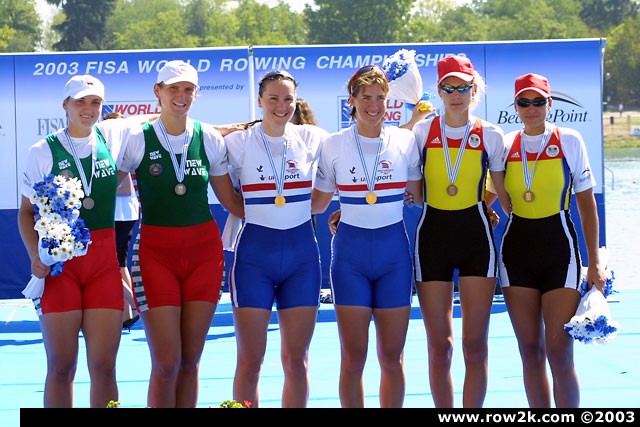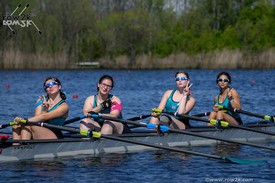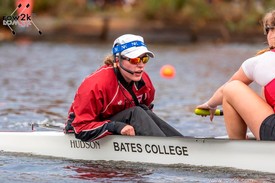
Rio Olympic M8+ Champion Tom Ransley described the experience of winning as 'only relief...it is over. It is done'. His was not the only experience from rowing or other sports that was less than uplifting to hear. The legendary Steve Redgrave's first words after winning in Atlanta was the sinister phrase, 'If any of you ever see me near a boat again, you have permission to shoot me.'
There are countless examples of a less than glorious, happy experience of winning across sport. Golfer Thomas Bjorn found himself thinking 'is that it?' when he won his first victory on the European Tour in 1996 at the age of 25. England Cricket Captain Andrew Strauss asked the same thing after the England test cricket team finally achieved the long-coveted status of being number 1 in the world in 2011. Mark Spitz crashed mentally after winning seven gold medals at the 1972 Munich Olympics as he realized the effects of winning were not lasting.
There's no question that elite sport is a tough business. But there is an increasingly sinister edge to many of these stories. Victoria Pendleton described winning her first Olympic gold medal as an anti-climax and said she didn't feel like celebrating at all. And World Champion boxer Tyson Fury spoke of 'the void' on the morning after knocking out the great Wladimir Klitschko. Jonny Wilkinson spoke of how he chased caps, titles and trophies waiting for the joy to come – in his own words, 'It never did.' And these are the gold medallists, these are the winners. Is this just part of the tough business of sport? How are we setting athletes up for these big moments in their lives? What expectations, what narratives and what images dominate?

Many of these examples clash uncomfortably with traditional images of sporting success, of winning heroes held up as sporting role models and intended to motivate future generations. In his autobiography, 'Open', Andre Agassi describes hauntingly his feelings after winning a long-awaited Grand Slam title, 'I feel… as if I've been let in on a dirty little secret: winning changes nothing.'
If that's how the winners feel, imagine the experience of everyone else who finished behind. Words such as 'bereavement', 'loss' and 'regret' recur with a poignant frequency. Stuck in this winner-takes-all mindset, there doesn't seem to be a good outcome, win or lose. Why would that be? This 'winning is the only thing' approach fails to tap into the deeper levels of motivation that we have when we are engaged in something that has meaning, where we can see ourselves making progress and where we feel connected to others around us.
Our emphasis on outcomes and results, placings and rankings, medals and trophies is shortening sporting careers, creating long-term mental health issues and putting off youngsters and adults from joining sport if they feel they aren't 'talented' enough or likely to come first.

It's time for a new mental approach to sport, whether elite or novice, and a return to why we do sport, how we do sport, and who we do sport with. Those who favour the old heroic narratives immediately think I'm advocating a softening or lowering of standards. Quite the opposite. I want to challenge the framework we put around winning, competition and success in order to consider how we might do it better. 'The Long Win' offers us three themes to help us do this, Clarity, a Constant learning mindset and Connection:
The 'three C's are not finite activities to be scheduled and ticked off. They are not KPIs to be managed in spreadsheets or flowcharts. They are open-ended, emerging, ongoing prompts to help us develop the way we think about the world, see ourselves within it and connect with others. They help us to ensure that the social sciences are included within our view of sports science and performance support, and keep us on track to grow our mindsets and mental models, change and adapt our behaviours as we develop, and build more meaningful relationships together to achieve what we cannot achieve alone.
Firstly, Clarity of what matters is vital to performance and goes beyond technique and fitness. When I started training as an Olympian twenty years ago, the performance environment was largely focused on strength, power and endurance measures, and struggled to explain or address poor performances when these measures scored highly. The stream of stories about disillusioned champions, long-term mental health challenges and, in the case of British Gymnastics, awful abuse, show that a broader approach to developing sporting performance is required.

Too many athletes have lost sight of why they play sport and operate in an environment that doesn't value them beyond sport and doesn't uphold values that count above results. Clarifying what matters to us in the longer-term and understanding the role that sport plays in your life is essential to developing a deeper connection to your sport. There don't need to be easy or fixed answers to these questions, but continuing to ask the questions will help chart a new path and broaden the experience and emotions that come in those moments after you cross the line.
Questions to develop Clarity include:
- Why do you play sport?
- Can you clarify what success looks like in terms of 'how' and 'who'? What are the values that underpin how you train and compete?
- What meaning has sport given to your life, and what will it give in the future?
A Constant learning mindset builds on the performance mindset thinking within sport psychology whereby athletes focus on the 'performance' that they control, rather than the results which depend on external factors. This involves a new narrative within training – focusing on what you are doing well and what you are looking to improve, rather than where you rank compared with others. It creates a resilience that comes from a focus on constant improvement and avoids the rollercoaster of emotions that comes from a focus on results – you're up when you win but already fearing the crash that comes when you lose.
Being introduced to this approach and putting it into practise in my third Olympiad as a GB rower made a huge difference to both the experience and results that followed. I remember how different it feels to sit on an Olympic startline ready to deliver your best performance, rather than to sit there feeling that you have to win. Even though most sports psychologists strongly advocate this way of thinking, many others in performance environments have yet to buy into it, unable to leave behind the language of results and rankings.

Questions to develop a Constant learning mindset:
- Are you open to learning? Do you display a growth mindset? Understand when you are on automatic pilot or fixed in your views and when you are open to learning in training and competition.
- How are you developing learning behaviours each day, including coaching, feedback and proactive reflection. Make these the mainstay of your performance conversations and thinking.
- Reflect on how you might need to adapt what you have learnt in the past, and consider what you might need to unlearn or relearn.
Finally, human Connection is the glue that connects us all to sport. Sport at its purest level is about connecting us and creating communities. In all the conversations I've had with members of the rowing community about 2020, it's the lack of connection with others across the rowing world that has often been what we've missed most. We should learn from this to place them at the forefront of our engagement with rowing and the sporting world going forward. Questions to develop Connection:
- How well do you connect with those around you? Consider the quality of your conversations, relationships and the communities to which you belong.
- What's the experience you want to have in rowing and the experience that you want others to have training and competing alongside you. This forms a central part of your definition of success.
- How could you reach out and connect on a deeper level with those you train with, your competitors in races and rivals and allow them to add an extra dimension to your engagement with sport.
It's clear that sport has significant untapped potential to be a far more effective driver of physical and mental health, a more positive means of exploring human potential and a powerful force to unite communities. There is significant scope to develop sporting success that lasts beyond the finish line, to reframe what winning means in order to improve both the performance and wellbeing of all of us who enjoy sport and to explore more fully the potential of sport to create positive social change.
Cath Bishop is a former rowing World Champion and Olympic silver medallist, former diplomat and now works as a business coach and speaker. She supports the work of The True Athlete Project which aims to transform lives through sport and create more mindful, compassionate performance environments. Her book, 'The Long Win: The search for a better way to succeed' was published in October by Practical Inspiration Publishing and was described by the Financial Times as 'a deep and rewarding exploration of human motivation', and listed as one of the Financial Times' Top 10 Business Books 2020.
If you enjoy and rely on row2k, we need your help to be able to keep doing all this. Though row2k sometimes looks like a big, outside-funded operation, it mainly runs on enthusiasm and grit. Help us keep it coming, thank you! Learn more.
Comments | Log in to comment |
There are no Comments yet
| |
- Bont Rowing
- Calm Waters Rowing
- Concept 2
- Craftsbury Sculling
- The Crew Classic
- CrewLAB
- Croker
- Dad Vail Regatta
- Durham Boat Co.
- Empacher
- Faster Masters
- Filippi
- Fluidesign
- h2row.net
- HUDSON
- Live2Row Studios
- Nielsen-Kellerman
- Oak Ridge RA
- Peinert Boat Works
- Pocock Racing Shells
- Race1 USA
- Rockland Rowing Masters Regatta
- RowKraft
- Rubini Jewelers
- Vespoli USA
- WinTech Racing
- Bont Rowing
- Calm Waters Rowing
- Concept 2
- Craftsbury Sculling
- The Crew Classic
- CrewLAB
- Croker
- Dad Vail Regatta
- Durham Boat Co.
- Empacher
- Faster Masters
- Filippi
- Fluidesign
- h2row.net
- HUDSON
- Live2Row Studios
- Nielsen-Kellerman
- Oak Ridge RA
- Peinert Boat Works
- Pocock Racing Shells
- Race1 USA
- Rockland Rowing Masters Regatta
- RowKraft
- Rubini Jewelers
- Vespoli USA
- WinTech Racing

















